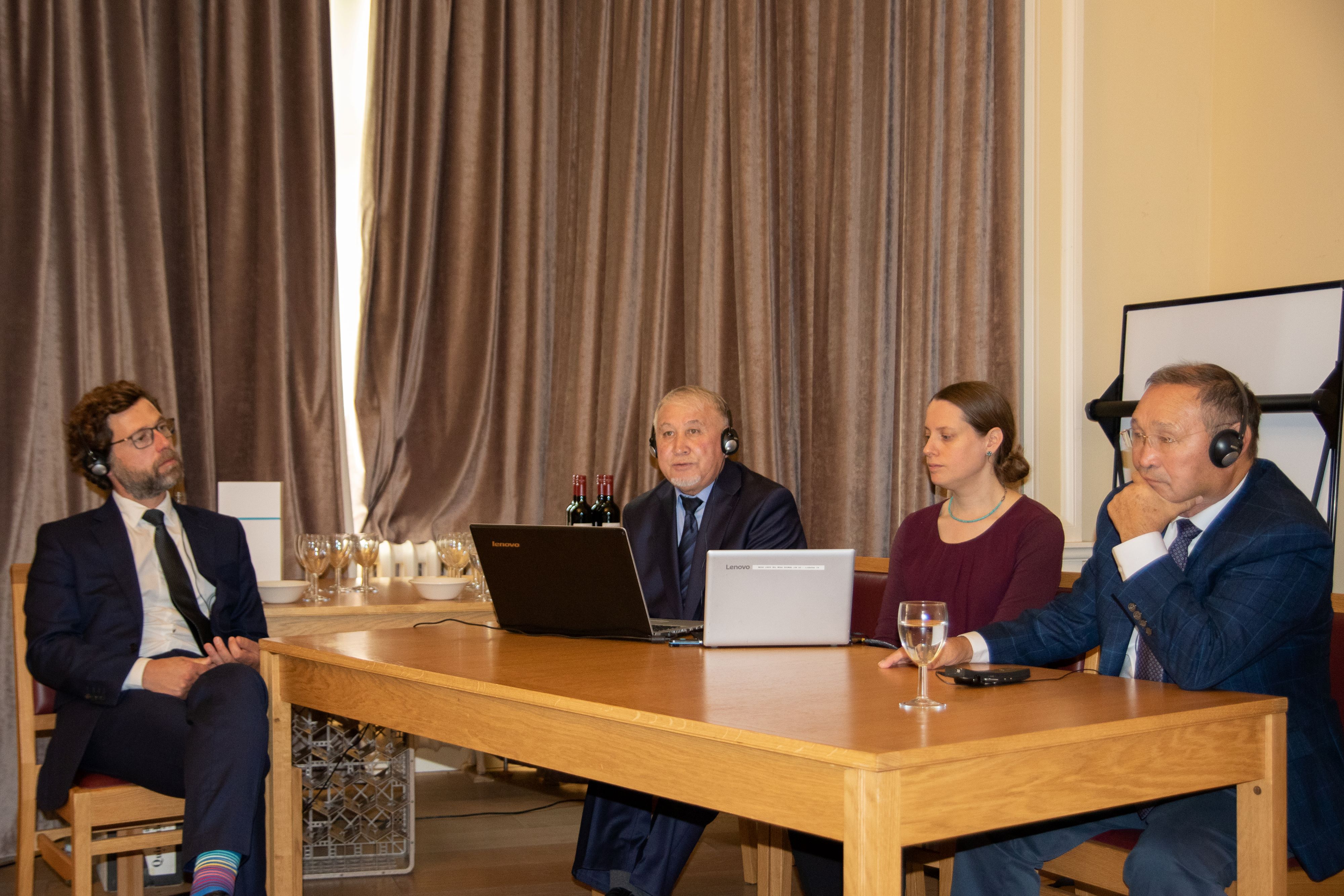Cambridge University Hosts Lecture by Kazakh Archaeologists

Cambridge, 28 September 2021 – Two leading Kazakh archaeologists, Professor Zainolla Samashev and Professor Abdesh Toleubayev, gave a guest lecture on the archaeology of Early Iron Age Kazakhstan at King’s College, University of Cambridge. The lecture was part of the Gold of the Great Steppe exhibition that runs at the Fitzwilliam Museum, Cambridge, and was hosted by the Silk Roads Programme, King’s College, Cambridge.
Professor Samashev and Professor Toleubaev led the archaeological expeditions that excavated the Berel, Shilikti and Eleke Sazy burial complexes, where the exhibited artefacts come from. Their fundamental research of the archaeological finds underpins the Cambridge exhibition.
The scientists offered a deep insight into the history and culture of the ancient Saka people who inhabited the territory of modern Kazakhstan in the first millennium BC. They elaborated on the metalworking techniques, the intricate shapes and symbolism of the Saka animalistic style and the processes of excavation and research of the artefacts.
Professor Samashev stressed that artefacts found during excavations over the past three years have significantly changed the perception of the history and culture of ancient Saka people. The objects testify to the high level of development of the Saka society.
He also noted that the artefacts trace parallels between the Saka rites and the traditions of modern Kazakhs.
Professor Toleubayev highlighted that the sophisticated techniques used to create the fine gold items testify to the exceptional level of skill of the Saka. He noted that the use of some highly complex and precise methods of metalworking remains a mystery to scientists.
Professor Toleubayev also noted that up until now, science has researched social stratification, property differentiation and statehood formation processes through the lens of settled agricultural peoples. Similar processes took place at a higher pace among nomadic peoples, which is why he stressed the need to revise the issue of statehood formation in the nomadic pastoral peoples.
More than 200 attendees from around the world took part in the lecture hosted in a hybrid format, including those from the UK, Germany, Israel, the Netherlands, and the USA.